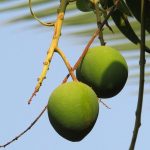African mango, also known as Irvingia gabonensis, is a tropical fruit native to West and Central Africa. It has gained popularity in recent years due to its potential health benefits, including weight loss. This blog post will explore the science behind African mango, its potential benefits, and how to use it effectively.
**Nutritional Profile of African Mango**
African mango is a rich source of essential nutrients, including fiber, vitamins, minerals, and antioxidants. It is particularly high in fiber, which can promote a feeling of fullness and reduce hunger.
**Weight Loss Benefits**
Numerous studies have investigated the potential of African mango for weight loss. One study published in the journal "Lipids in Health and Disease" found that participants who consumed African mango extract for 12 weeks lost significantly more weight and body fat than those who did not. Another study, published in the journal "Obesity," showed that African mango extract reduced body weight, waist circumference, and body mass index (BMI) in overweight and obese adults.
The weight loss benefits of African mango are believed to be due to its appetite-suppressing effects and its ability to regulate blood sugar levels. Fiber helps slow down digestion, which promotes a feeling of fullness and reduces hunger. Additionally, African mango contains compounds that have been shown to improve insulin sensitivity, which can lead to better blood sugar control and reduced fat storage.
**Other Potential Benefits**
In addition to its potential for weight loss, African mango has also been studied for its effects on other health conditions, including:
* **Cholesterol levels:** African mango extract has been shown to lower cholesterol levels in both animals and humans.
* **Blood sugar levels:** African mango may help regulate blood sugar levels, making it a potential benefit for people with type 2 diabetes.
* **Inflammation:** African mango contains antioxidants that have anti-inflammatory properties, which may provide benefits for conditions such as arthritis.
**How to Use African Mango**
African mango is available in various forms, including supplements, extracts, and whole fruit. Supplements typically contain standardized amounts of African mango extract, while extracts are more concentrated. Whole fruit can be consumed fresh or dried.
The recommended dosage of African mango varies depending on the product and the individual's needs. It is important to follow the instructions on the product label and consult with a healthcare professional before taking African mango supplements.
**Side Effects and Precautions**
African mango is generally considered safe for most people. However, some side effects have been reported, including stomach upset, nausea, and headaches. Pregnant or breastfeeding women should avoid consuming African mango supplements.
Additionally, people with diabetes should use African mango with caution, as it may lower blood sugar levels. It is important to monitor blood sugar levels closely and adjust medication as needed.
**Conclusion**
African mango is a promising superfruit with potential health benefits, including weight loss. Its high fiber content, appetite-suppressing effects, and ability to regulate blood sugar levels make it a potential tool for managing weight. However, more research is needed to fully understand its benefits and potential side effects. As with any dietary supplement, it is important to consult with a healthcare professional before using African mango products.

